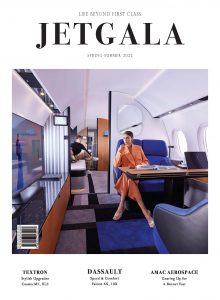Dual Citizenship As A Wealth Management Strategy
Alternative residence is increasingly viewed as a strategic wealth management tool.
by Marc Almagro
“Immigration can significantly enhance a person’s investment capacity by providing access to new markets, better tax regimes, and more stable economic environments.”
“Geopolitical tensions and mobility restrictions underscore the need for flexible immigration policies that appeal to HNWIs, who can drive substantial economic benefits.”
“As capital and mobility face increasing restrictions within multipolar blocs, families are recognising the need to diversify their assets, domicile, and governance to effectively navigate global changes.”
Recent global shifts have necessitated significant changes in immigration regulations due to several pressing factors, observes Nirbhay Handa, co-founder and CEO of Multipolitan. Economic pressures and labour shortages in critical sectors have prompted countries to adapt policies to attract skilled migrants. “Initiatives like the UAE’s Golden Visa and Singapore’s One Pass are perfect examples of these adjustments,” he adds. Geopolitical tensions and mobility restrictions underscore the need for flexible immigration policies that appeal to HNWIs, who can drive substantial economic benefits.
As a global migration platform, Multipolitan streamlines the process of travelling, relocating, setting up businesses, and managing assets for the borderless enthusiast. Multipolitan is helping HNWIs clear immigration hurdles and realise substantial economic benefits overseas.
The company initially focused on private client advisory business specialising in investment-based migration for HNWIs. “This is where our team brings years of experience,” Handa says, “but this is only a starting point.” He adds that Multipolitan is building its capabilities in offering visa and consular assistance, skilled migration, digital nomad visas, and business incorporation services which will be integrated into a super app currently under development and scheduled for launch in mid 2025.

“Our decision to launch Multipolitan was driven, among others, by several macro factors reflecting the evolving global landscape,” says Handa. “In today’s world, optionality has become essential. As capital and mobility face increasing restrictions within multipolar blocs, families are recognising the need to diversify their assets, domicile, and governance to effectively navigate these changes.” Just as financial advisors advocate for diversifying investments to manage risk, Multipolitan promotes holding alternative residences to mitigate geopolitical and economic uncertainties, he says.
“Our aim is to create a brand that resonates with both the established and the aspiring, empowering people to navigate change and become what we call ‘multipolitans’ – people who defy traditional notions of residence and belonging by diversifying their living arrangements.”
Migration In Economic Growth
Necessity and opportunity propelled Handa to entrepreneurship. Following his rapid rise at investment migration consultancy Henley & Partners, he yearned to create a unique product. It would have been easier to start a similar business, he admits, but his sights were set beyond private client services. “I wanted to build a broader, scalable, product-driven platform that encompasses all aspects of mobility.”
He partnered with Lee Smith, his co-founder and investor, whose extensive background in product and technology, including a successful exit from PayPal, complemented Handa’s government advisory and immigration-led private client services expertise. Together they hatched a plan to transform immigration services into a modern, user-friendly interface at scale.

They aimed at extending beyond the HNW space, making their services accessible to a broader audience. To ensure a clear distinction between their product and services, they brought on board a third co-founder, Sandeep Jain, who focuses on keeping the private client business service-oriented while they scale up their innovative platform.
“Migration plays a crucial role in economic growth,” Handa emphasises, “particularly in developed nations facing talent gaps. The movement of skilled individuals from developing economies to developed ones is essential for a healthy global economic system. Multipolitan is designed to meet these needs, offering a pathway to greater autonomy and security in an increasingly complex global landscape.”
Residence & Citizenship As Assets
Multipolitan initially focused on expanding the residence and citizenship options of HNWIs. As clients, they are typically transnational and mobile, in search of strategic solutions to secure their future and build resilience. Alternative residence and citizenship, Handa says, are now recognised as crucial assets within this wealth segment.
“The rise of remote work and technological advancements call for specialised visas for digital nomads, supporting local economies and creating a dynamic workforce. Environmental and social factors, including climate change and the quest for better living conditions, are reshaping migration patterns and necessitating updated regulations.” Moreover, Handa emphasises, “the fierce global competition for talent and innovation has made it crucial for nations to reform immigration policies to create attractive environments for entrepreneurs and skilled professionals. These regulatory changes are essential for countries to address contemporary global challenges and seize new opportunities.

“While (places) like Singapore and (the) UAE offer stability, many countries face economic challenges, political instability, or restrictive fiscal policies that threaten wealth preservation and adaptation to modern financial practices, including digital assets.” For entrepreneurs and families, he points out, diversifying assets, currencies, and governance structures is essential for long-term stability.
“In addition, once launched, our productised interface will scale our immigration services beyond private clients to a broader, more aspirational audience, focusing on skilled migration, digital nomad visas, and visa & consular services. Our tools will simplify and streamline international mobility, enabling clients to navigate global opportunities with ease and confidence.”
Tracking Growth & Expansion
Multipolitan’s private client business generates revenue primarily through advisory fees for investment migration services. “We operate on a retainer model, assisting families in achieving their international mobility goals.
“Many investment migration programmes involve real estate, allowing us to earn additional fees from developers. This applies to Golden Visa programs in countries like Greece, Spain, and the residence program in Malta.” Additionally, Multipolitan offers government advisory services, helping countries develop attractive FDI generation tools. “Our fees for these assignments can be structured as advisory fees or tied to the success of the FDI-generating vehicle we help create.”

Handa affirms that they are on track with their profitability targets in the private client business. In fact, they have recently secured pre-seed funding from a renowned investor which has significantly bolstered their growth and expansion plans.
“In partnership with our parent firm, Emergent X (www.emergentx.org), our aim is to bring real utility to immigration-related matters through blockchain technology. Our private client business currently operates in Singapore and Dubai, with plans to expand to Miami, Berlin, Shanghai over next 18 months.”
The company also aims to partner with more governments to develop projects that attract debt-free capital and highly skilled entrepreneurial talent to their country.
“Finally the most important is to get our productised interface live and operational and a lot of my time is being spent on its development. We are aiming a soft launch for the same by July 2025.”
To One’s Advantage
How can an HNWI work with existing immigration rules to ensure that they benefit from them? HNWIs, Nirbhay Handa says, can benefit from existing immigration rules by using alternative residence or dual citizenship as wealth management tools.
According to Handa, the process of turning immigration regulations to one’s advantage involves:
- Passing a due diligence process
- Assessing personal and financial goals
- Identifying suitable residence or citizenship programs
- Navigating the application processes with expert guidance
- Leveraging new residency or citizenship to optimize tax, investment, and business strategies
- Planning an entire generation in advance ensures that wealth continues to grow and benefit future generations, which is a common goal among our clients.
Immigration can significantly enhance a person’s investment capacity by providing access to new markets, better tax regimes, and more stable economic environments, Handa explains. “For example, obtaining residence in a country with favourable tax policies can reduce the tax burden on investment returns. Additionally, being a resident can offer better protection for assets and access to exclusive investment opportunities.”
Alternative residence or dual citizenship is increasingly viewed not just as a status symbol, but as a strategic wealth management tool, Handa points out. “HNW families and investors around the world utilise investment migration to enhance their mobility, lifestyle, and educational opportunities, while also expanding their businesses globally, securing their families’ futures, and mitigating sovereign risk.
“The concept of diversifying investments across different regions and asset classes is equally applicable to one’s place of residence. By accessing multiple jurisdictions, individuals can diversify their assets and opportunities, thereby minimising exposure to country-specific risks such as inadequate healthcare, high taxes, or sudden policy shifts.” The ultra-wealthy, according to Handa, often plan several generations ahead to ensure that their wealth continues to grow and benefit their descendants.
“This not only improves mobility and lifestyle but also provides avenues to globalise businesses, protect families’ futures, and hedge against sovereign risk. The more jurisdictions accessible, the more diversified one’s assets and opportunities become, reducing exposure to risks like poor health security, higher taxes, or unexpected policy changes.”
You May Also Like:







